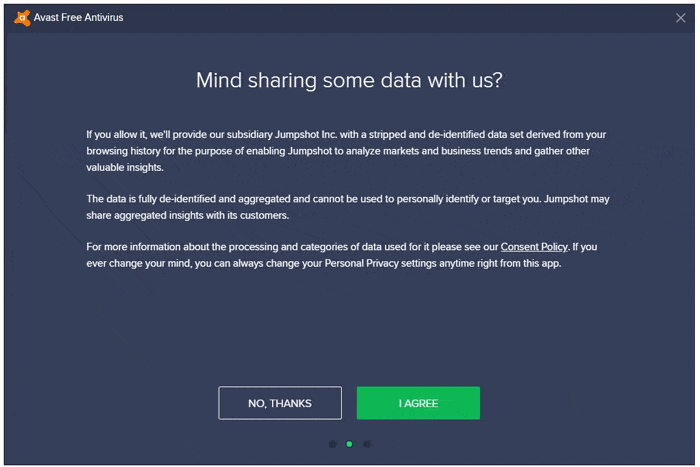Avast has announced that it is extinguishing its Jumpshot subsidiary fim after the “data trafficking” scandal broke. How does this relate to and affect SEO?
Spis treści
What affair is being referred to?
As a reminder: in recent days, a “sensational affair” has been circulating in the media: Avast is selling its users’ data. It is neither a sensation nor an affair.
Avast has been doing this for a long time, with the acquiescence of users, and the feature is easy to disable in Avast. Well, and the data is fully anonymous.
The company owned by Avast – Jumpshot – then sells the data, but not just (as the media put it) to giants, but actually to anyone who needs it for any kind of analysis.
The data is mainly web pages visited, clicks, time spent on the site, etc.
The media (giants of technological knowledge like VICE) indicated that the data reportedly made it possible to identify users, but no one could answer how this was supposedly possible. Nor to mention by name someone who could do it.
I remind you that Avast is free, and data collection can be easily turned off. Much easier than Google, for example.
After a media uproar, Avast decided to extinguish this branch of its business and shut down Jumpshot.
What impact could the closure of Jumpshot have on SEO?
Just scour Jumpshot’s truncated list of clients: Google, Microsoft, Pepsi, Intel, Unilever, TripAdvisor,
Moz
,
Ahrefs
,
SEMrush
, SparkToro.
4 SEO combos in a list that is not complete and would probably include a dozen more similar ones.
I’ve written many times on this blog about how SEO combiners estimate their keyword data, for example, using clickstream, i.e., services like Jumpshot. Though, for example, in a recent post about keyword analysis in Ahrefs.
I will not undertake a moral evaluation of the trade in such data. This was undertaken, for example, by Rand Fishkin:
Avast provides a free product. It then asks if you are willing to share your data in a way that will be aggregated, anonymized, and sold. Many people said yes to this. I cannot find a way to think about that as ethically wrong.
I understand that other people believe this is unethical. Fine, we disagree. But to say that Jumpshot and Avast should be singled out over and above far more guilty, more egregious abuses of privacy is hypocrisy.
Avast provides a free product. It then asks if you want to share your data, which will be collected collectively, anonymized and sold. Many people agreed to this. I don’t know how this can be considered unethical.
I understand that some will consider it unethical. OK, we disagree. But to say that Jumpshot and Avast should be singled out and blamed for faithful abuse of privacy is hypocritical.
But if you have a vision in your mind of corporate giants buying up our privacy, then no, that’s not what this is about.
This is data that realistically helps us in our daily work, even beyond SEO tools.
Thanks to Jumpshot and its data, for example, we can talk about any specifics at all about Zero-click searches, because it is thanks to this data that articles like this one – in my opinion groundbreaking – are being written.
Essential question for today
The fundamental question we do not yet know the answer to is:
To what extent have SEO combos relied on data from Jumpshot?
Of course, the methods of operation in this matter remain the technological secrets of Ahrefs and other tools, but there are many indications that this was a solid foundation from which estimates were made of the number of searches, the number of clicks or, for example, the Ahrefs Return Rate.
Joe Youngblood on Twitter wrote:
I don’t KNOW if the keyword tools we use for SEO research use Jumpshot data, but I do know that I’m exporting a crap ton of keyword reports today just in case.
I don’t know if the keyword tools we use for SEO research use Jumpshot data, but I know I export tons of keyword data today, just in case.
From myself, I would add that Moz, Ahrefs and SEMrush used this data for sure, and work is probably underway in the offices of these companies (as well as many others) to patch this data hole.


